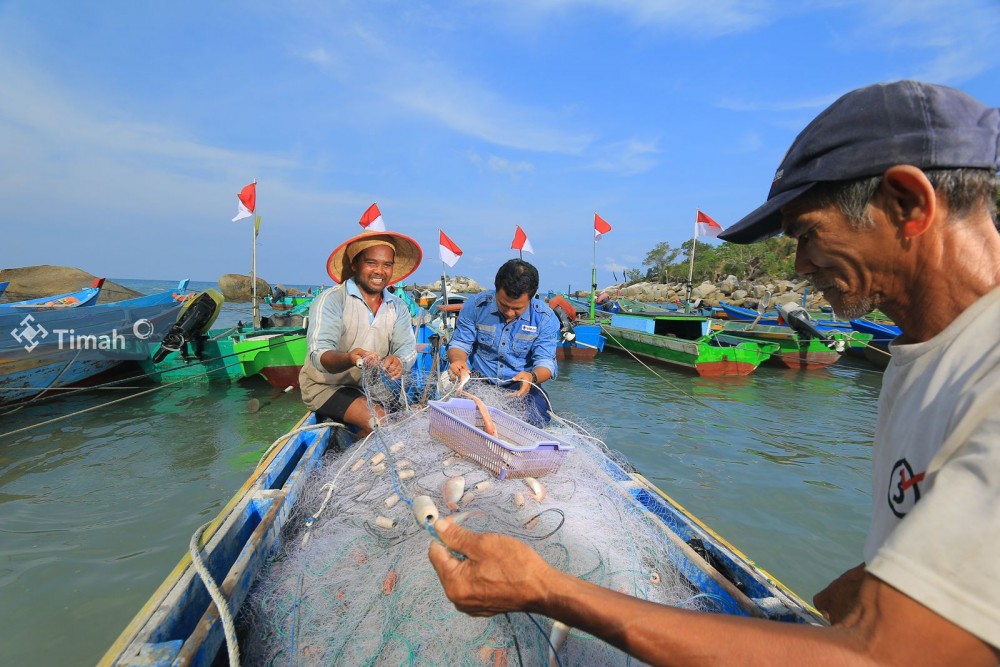
PANGKALPINANG – Empowering fishermen's groups is one of PT Timah's key focuses in implementing its corporate social and environmental responsibility programs.
PT Timah carries out various sustainable initiatives to improve the welfare of fishermen and enhance the economy of coastal communities surrounding its mining operations.
Through its corporate social responsibility programs, PT Timah strives to help fishermen's groups increase productivity, achieve more stable incomes, and support the sustainability of marine resources.
As a member of the mining industry holding company MIND ID, PT Timah has implemented several programs for fishermen's groups, including BPJS Employment (national social security) for fishermen, the Fish Shelter/rumpon program, coral gardens, snapper farming, mangrove planting and nursery programs, and shrimp paste production.
These empowerment programs for fishermen are carried out in the provinces of Bangka Belitung and the Riau Islands.
For the BPJS Employment social security program, a total of 959 fishermen have been registered in the program facilitated by PT Timah. This initiative is expected to provide social protection for fishermen, ensuring their safety at work and improving their welfare and security while performing their activities.
Through the Fish Shelter program, PT Timah collaborates with fishermen's groups to construct, submerge, and maintain fish shelters, which aim to provide shelter for fish and increase fish populations in nearby waters.
“With the fish shelters, we hope fishermen can catch fish more easily and sustainably, thus supporting the continuity of fishery resources,” said Anggi Siahaan, Department Head of Communication at PT Timah.
In addition, PT Timah is actively involved in creating coral gardens to preserve coral reef ecosystems, which are crucial for marine biodiversity.
“By protecting and restoring coral reefs, PT Timah aims to support marine ecosystem health, which benefits fishermen through increased fish stocks,” explained Anggi.
PT Timah also encourages fishermen’s groups to engage in snapper farming as an alternative livelihood, particularly during unfavorable weather conditions for fishing at sea.
Another regular initiative PT Timah promotes with fishermen is mangrove planting and nursery programs. These aim to protect mangrove ecosystems, which significantly absorb carbon emissions, safeguard coastlines, and support biodiversity.
To enhance the development of marine products, PT Timah also supports fishermen's groups in producing shrimp paste, which involves local women in the process.
“These fishermen's empowerment programs are expected to help boost their economy and improve their welfare,” concluded Anggi. (*)